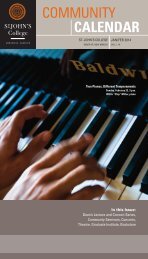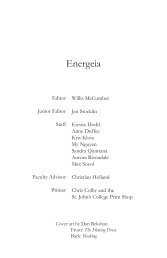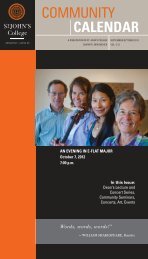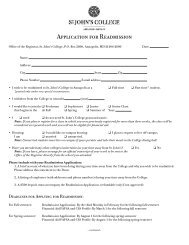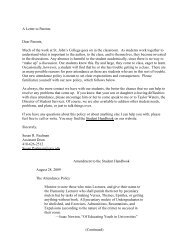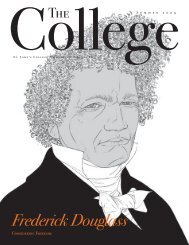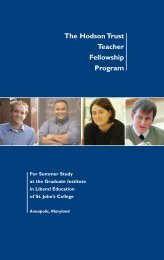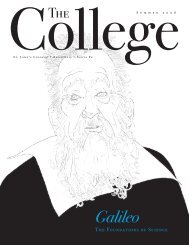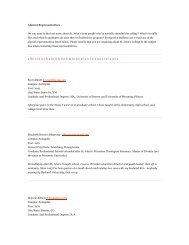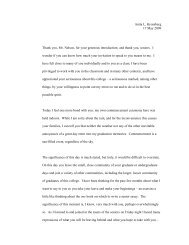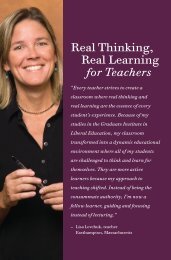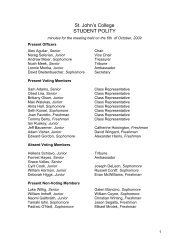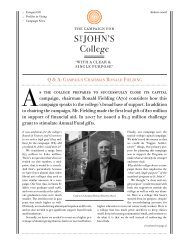âTo Meet with Macbeth,â given by tutor Louis ... - St. John's College
âTo Meet with Macbeth,â given by tutor Louis ... - St. John's College
âTo Meet with Macbeth,â given by tutor Louis ... - St. John's College
You also want an ePaper? Increase the reach of your titles
YUMPU automatically turns print PDFs into web optimized ePapers that Google loves.
that he sees and holds in his other hand as he exits in a state of singleness becomes the bloody daggers<br />
that he does not see but brings back from the place of murder as if bound to them as manual<br />
extensions. Lady <strong>Macbeth</strong> takes these daggers in her clean hand to use like a brush to dip into Duncan<br />
and to paint the faces of the grooms; she returns to take his hand, one in color <strong>with</strong> hers, to a washing<br />
that will not clean and then to a bed in which they will never enjoy conjugal sleep again. This action of<br />
the dagger is one of the greatest actions that Shakespeare ever conceived for the stage.<br />
If blood is what it takes to make actors the master painters of the soul’s motions, as we are<br />
thrilled to witness in Act II of this play, then let there be more of that drink before we inquire into<br />
undoing its effects. The “more” that immediately follows is the discovery of the murder. Macduff<br />
returns from Duncan’s chamber as one who experiences the limit of logos:<br />
Enter Macduff<br />
Macduff.<br />
O horror, horror, horror! Tongue nor heart<br />
Cannot conceive nor name thee.<br />
……………………………..<br />
Do not bid me speak;<br />
See, and then speak yourselves. Awake, awake!<br />
Ring the alarum bell.<br />
(II.iii.66-67, 74-76)<br />
Macduff thus enters the action to wake people up to look upon triple horror—“most sacrilegious<br />
murder,” “a new Gorgon,” “the great doom’s image”—the words he tries are unequal to the sight he<br />
sees (II.iii.69, 74, 80). So his voice, operating at the top of his capacity and our toleration for volume,<br />
turns into the alarum bell and out rush the half-naked sleepers, some to stand shaking in the “great<br />
hand of God” invoked <strong>by</strong> Banquo, and others (Duncan’s sons) to steal themselves away “when there’s<br />
no mercy left” (II.iii. 132, 148). Let it be noted that Macduff (who does not attend the feast for Duncan)<br />
knocks for entrance after drink has done its work; he cannot speak the horror that he sees in <strong>Macbeth</strong>’s<br />
house. He is the only character in the play to be called “good” convincingly and more than once (II.iv.20,<br />
IV.ii.16, IV.iii.117). He does not attend <strong>Macbeth</strong>’s crowning at Scone; instead, he returns home to his<br />
35



